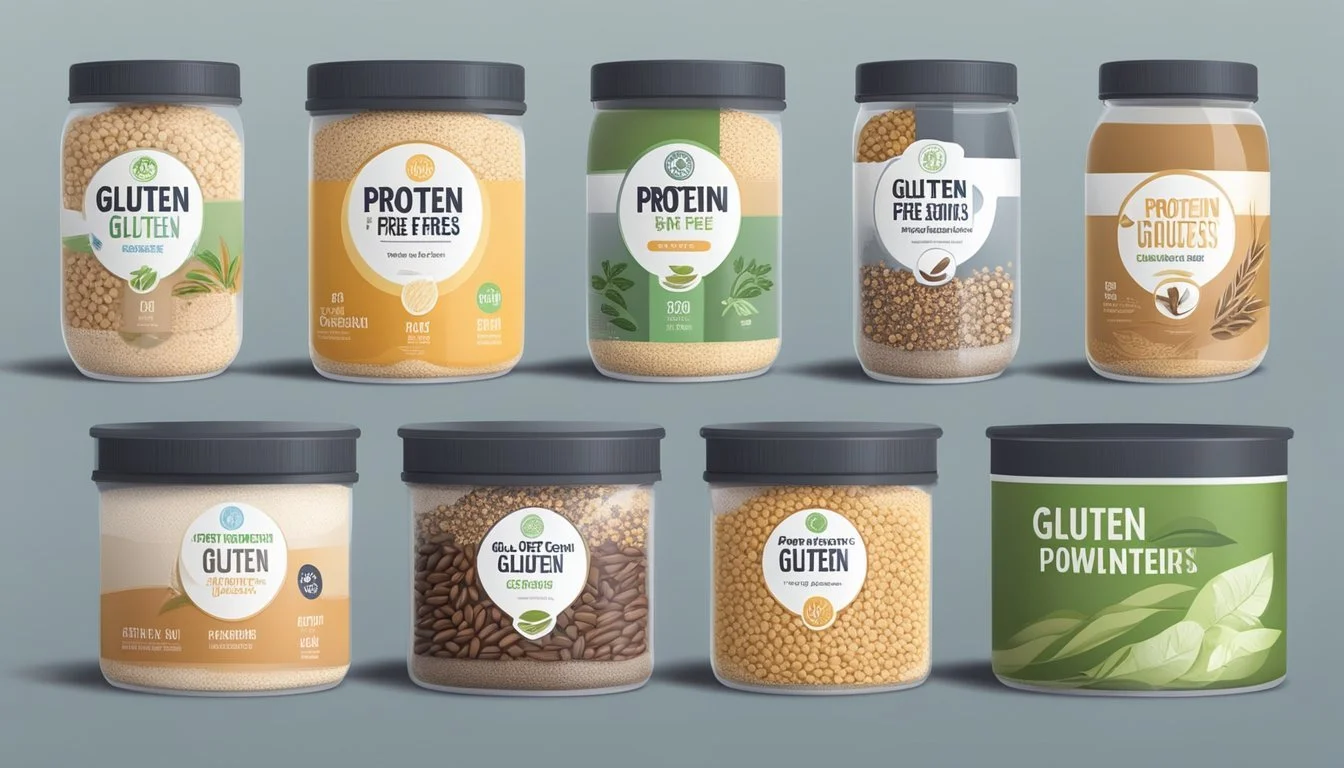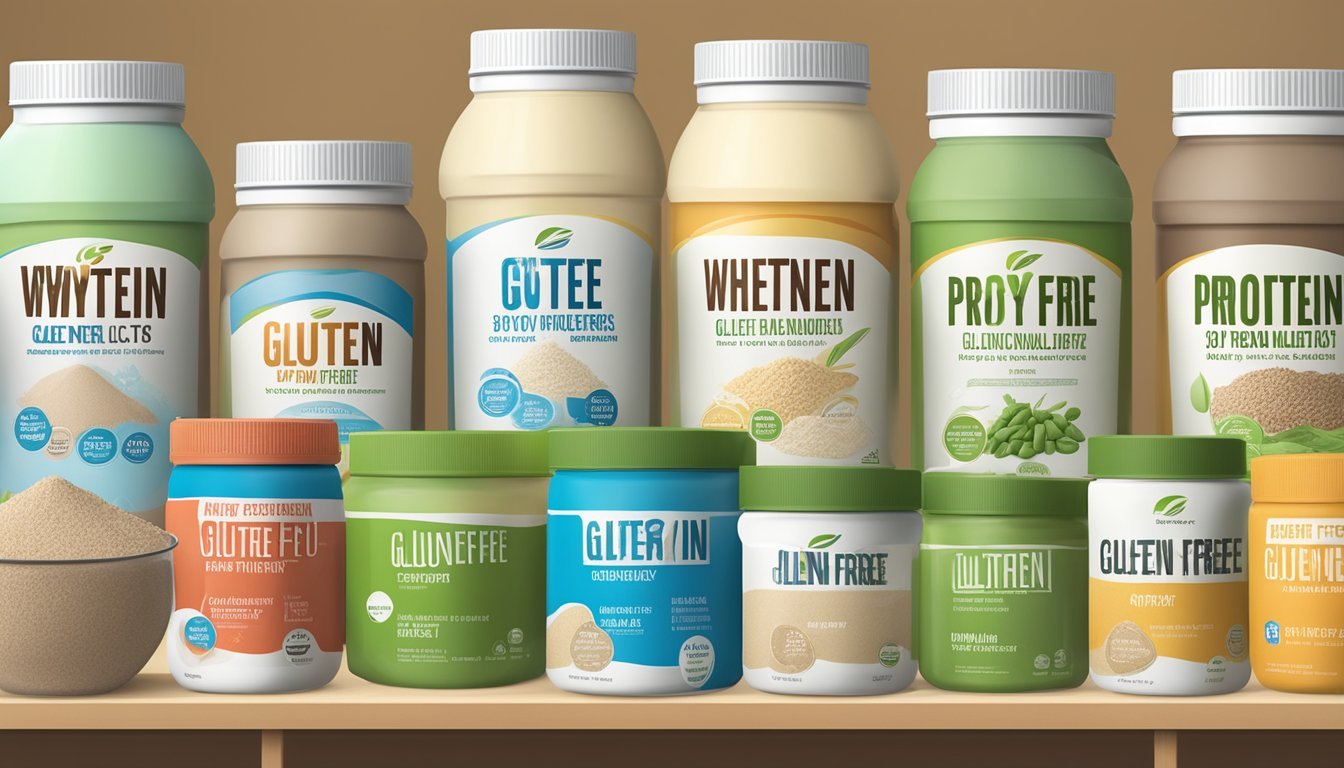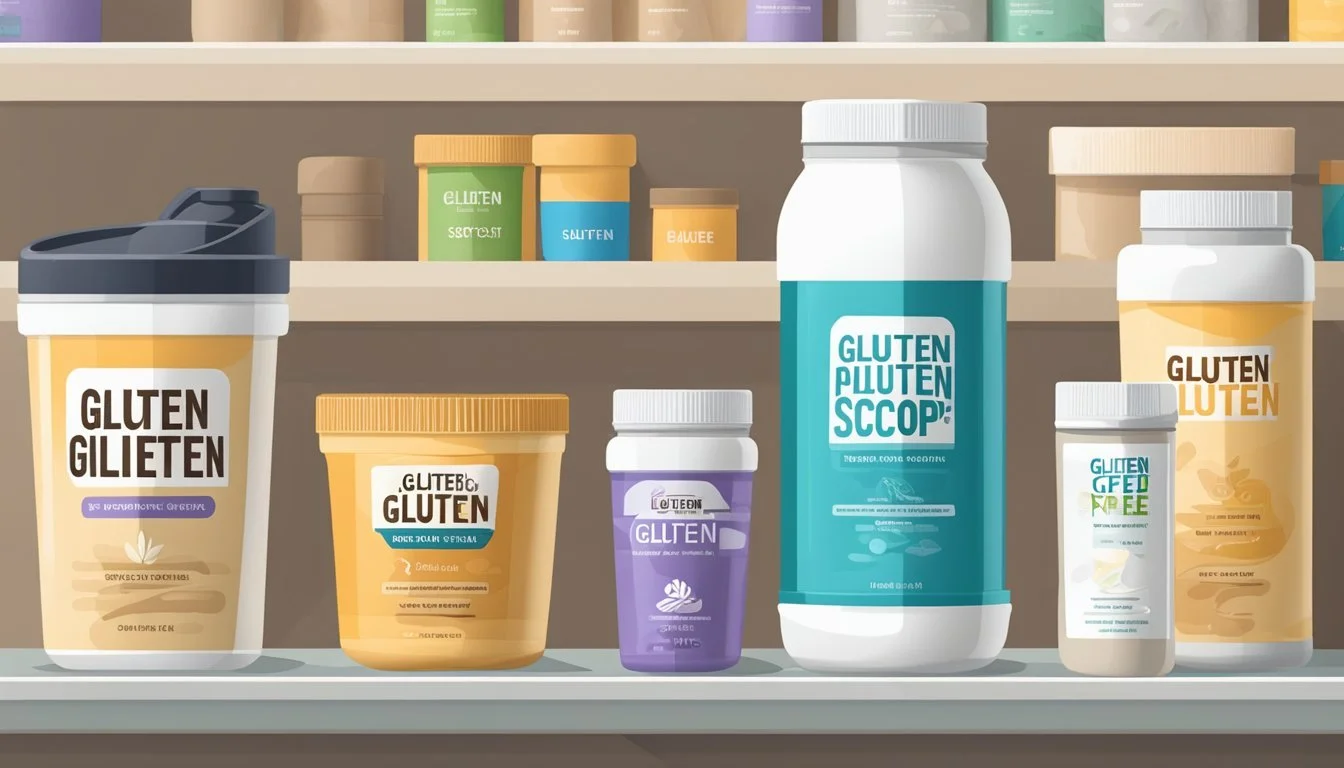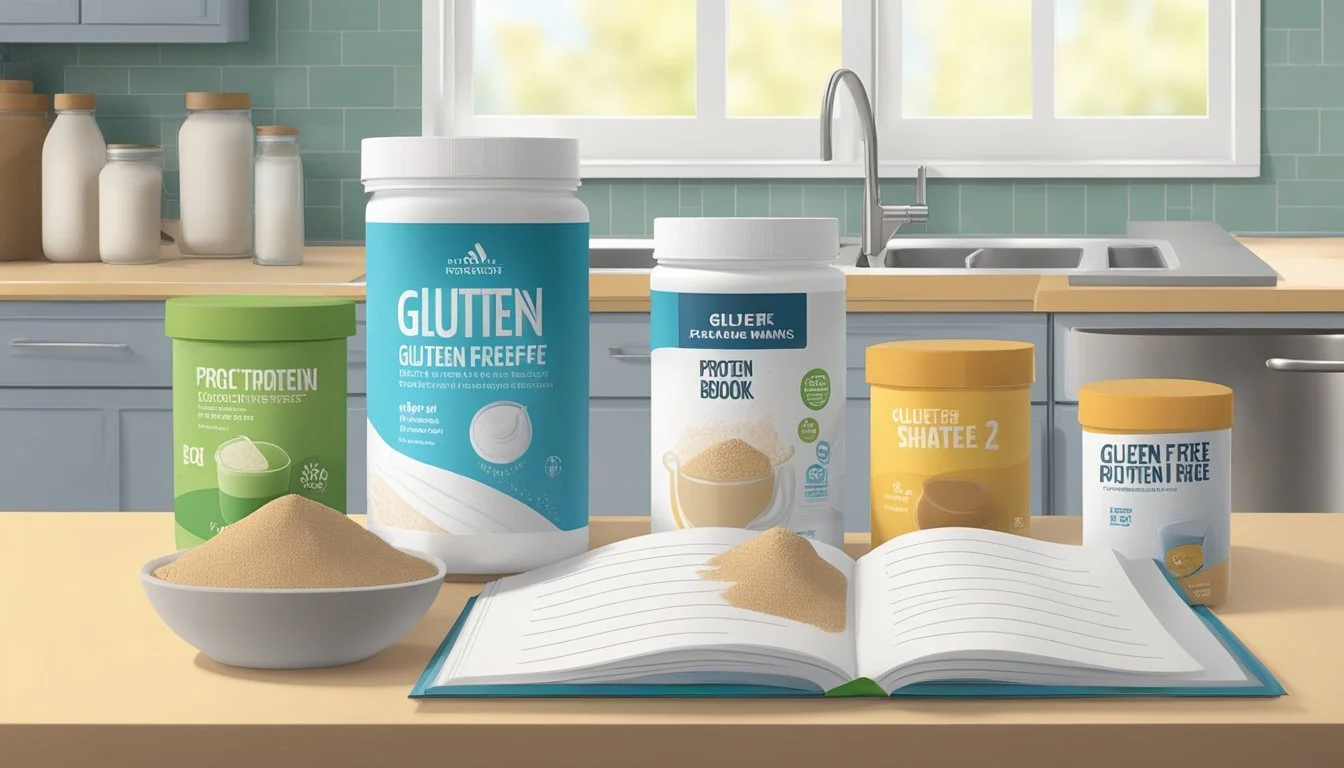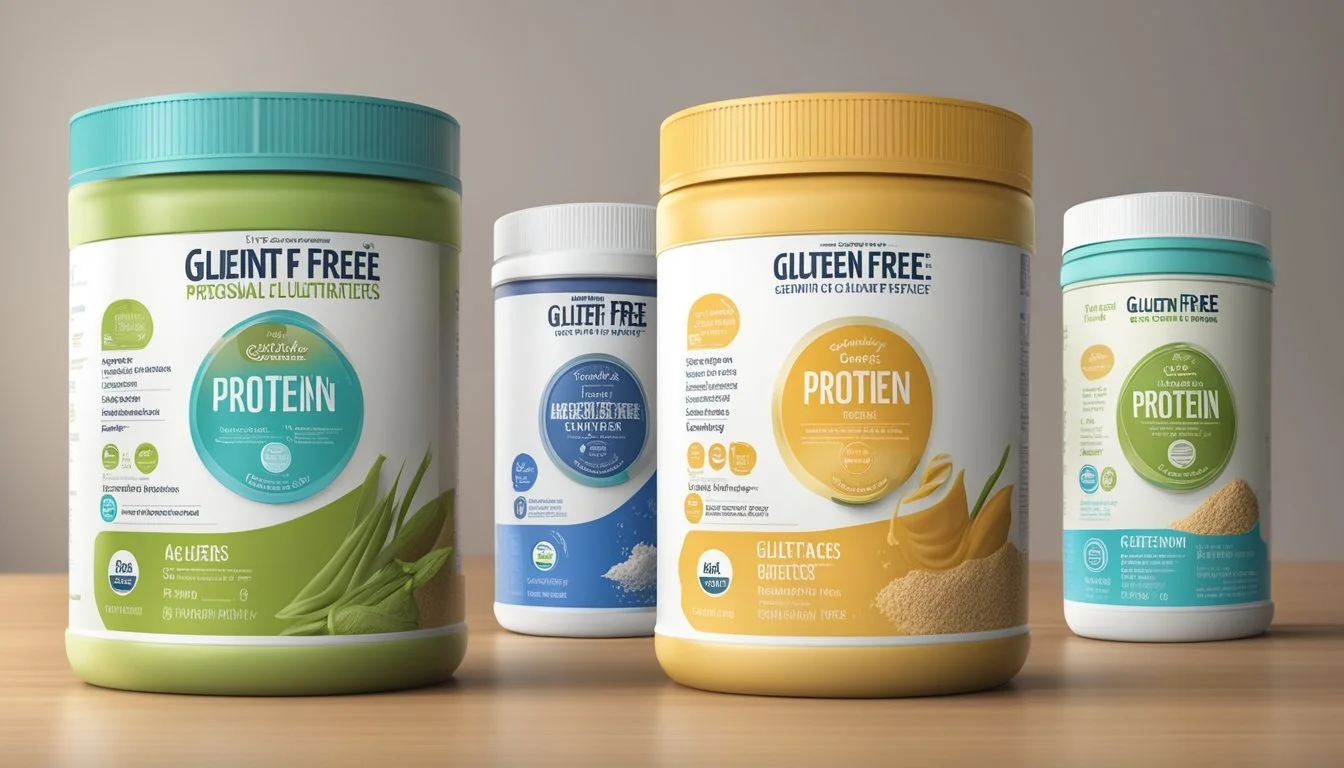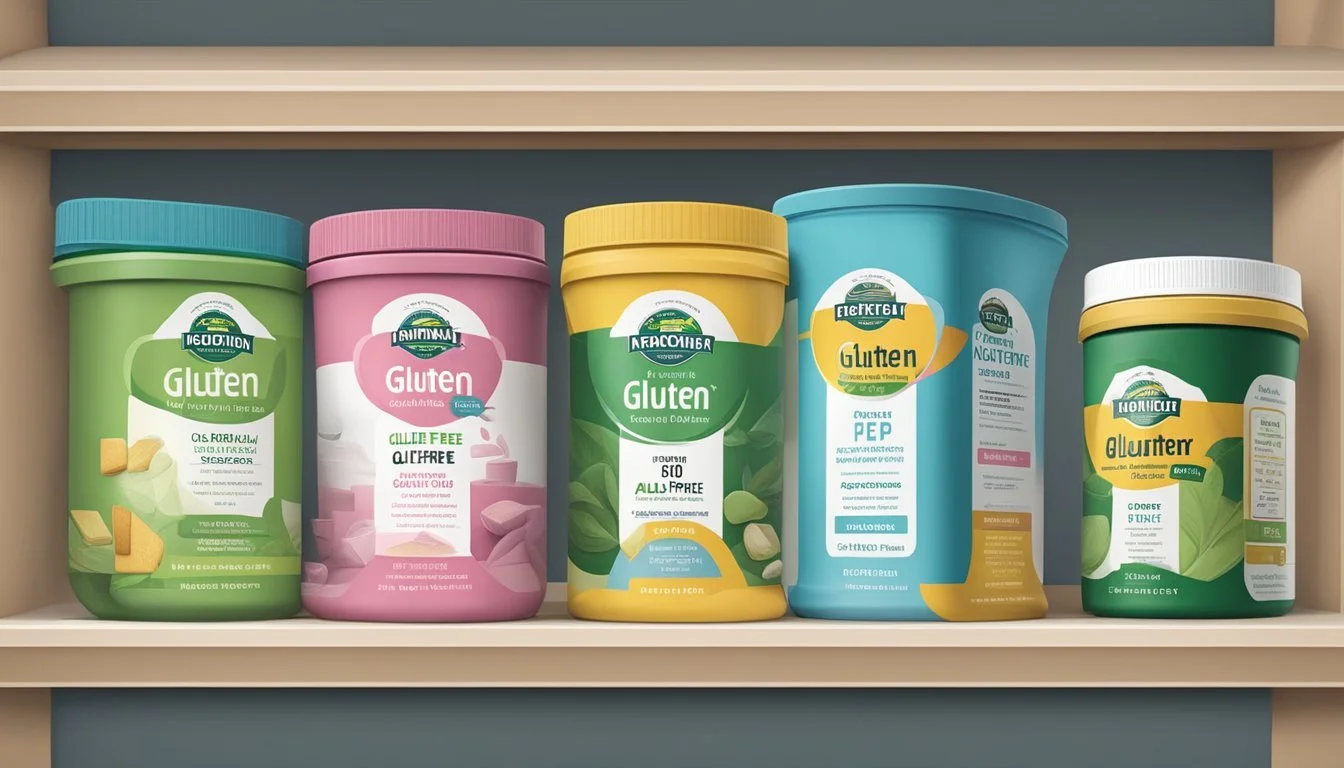Are Protein Powders Gluten-Free?
Understanding Their Ingredients and Labels
Protein powders are dietary supplements that are popular among health enthusiasts, athletes, and those looking to manage their weight or increase their protein intake. The market offers a myriad of protein powder options, many of which highlight their gluten-free status. Gluten, a group of proteins found in wheat, barley, and rye, can trigger adverse reactions in individuals with celiac disease, gluten sensitivity, or those opting for a gluten-free diet for other health-related reasons.
Given the dietary needs and concerns surrounding gluten, consumers are often vigilant when selecting protein powders. While many protein powders are inherently gluten-free, such as those sourced from plants like pea, brown rice, chia seeds, and hemp, others may pose a risk of containing gluten due to added ingredients or cross-contamination during manufacturing. It is crucial for consumers to review product labels and look for third-party certifications to ascertain the gluten-free integrity of the protein powder they choose.
Navigating the variety of protein powders on the market can be a challenge for individuals looking to avoid gluten. To cater to this demand, manufacturers have started providing more gluten-free options, highlighting the importance of transparency in ingredient sourcing and processing. Those with gluten intolerance can find suitable options among both dairy-based and plant-based protein powders, ensuring that they can enjoy the benefits of protein supplementation without compromising their health and dietary restrictions.
Understanding Gluten
In the context of protein powders and dietary choices, it’s essential to grasp what gluten is and where it's commonly found, as well as be aware of the health concerns associated with its intake for certain individuals.
Sources of Gluten
Gluten is a group of proteins predominantly found in wheat, rye, and barley. It imparts elasticity to dough, helping it to rise and maintain its shape, resulting in a chewy texture when baked. Common gluten-containing ingredients include:
Wheat varieties like spelt, kamut, farro, and durum
Rye
Barley
Triticale (a cross between wheat and rye)
These ingredients are often found in products such as breads, pastas, cereals, and baked goods. Additionally, they could be present in less obvious food items like sauces, dressings, and beer.
Gluten and Health Concerns
For most people, consuming gluten is harmless. However, individuals with celiac disease or gluten sensitivity experience adverse reactions to gluten. Celiac disease is an autoimmune disorder where ingestion of gluten leads to damage in the small intestine. Symptoms can range from digestive discomfort to more severe health issues.
Gluten sensitivity or intolerance, while less severe than celiac disease, still causes discomfort with symptoms that may include bloating, gas, and abdominal pain. It's crucial for those affected to avoid gluten-containing ingredients to manage their symptoms and maintain overall health.
Identifying Gluten-Free Protein Powders
For individuals on a gluten-free diet, identifying protein powders that are safe to consume involves examining labels for certifications and understanding risks of cross-contamination.
Label Reading and Certification
A reliable indicator that a protein powder is gluten-free is certification from a recognized organization. Protein powders that carry a gluten-free certification label are generally tested to contain less than 20 parts per million of gluten. This level is considered safe for most individuals with gluten sensitivity. When examining labels, look for certifications from entities like:
Gluten-Free Certification Organization (GFCO)
Celiac Support Association (CSA)
Allergy Standards Limited (ASL)
Furthermore, the ingredients list should be scrutinized. Ingredients derived from wheat, barley, rye, and hybrids of these grains are indicative of gluten presence. Instead, look for gluten-free ingredients such as:
Gluten-Free Protein Sources Pea Protein Brown Rice Protein Hemp Protein Soy Protein
Risks of Cross-Contamination
Even with certification, there's a risk of cross-contamination, which can occur if the protein powder is produced in a facility that also processes gluten-containing products. To minimize this risk, manufacturers may implement gluten-free production lines or entire facilities dedicated to gluten-free products. Checking the label for mentions of dedicated gluten-free manufacturing practices can provide additional assurance that the protein powder is safe for those with celiac disease or a heightened gluten sensitivity. It is crucial for consumers to be aware that unless specifically stated, there is a possibility of cross-contamination.
Types of Protein Powders
When selecting a protein powder, it is crucial to understand the different types available on the market. Each variety caters to specific dietary needs and preferences, providing options for those with gluten sensitivities or individuals following a vegan or vegetarian diet.
Whey Protein Powders
Whey protein powders are among the most popular supplements for muscle building and recovery. Derived from milk, whey protein is typically not suitable for vegans but can be consumed by vegetarians. When choosing a whey protein powder, individuals with gluten intolerance should specifically seek out products labeled as gluten-free to avoid cross-contamination.
Plant-Based Protein Powders
Plant-based protein powders offer a vegan-friendly alternative, often derived from sources like pea protein, soy, rice, and hemp. These powders are inherently gluten-free, making them a safe and popular choice for individuals with dietary restrictions. Pea protein, in particular, is celebrated for its high protein content and ease of digestion.
Other Protein Powders
In addition to whey and plant-based options, other protein powders on the market include egg white protein and casein protein, which are suitable for vegetarians but not for vegans. For those with gluten sensitivities, it is essential to verify that these alternatives have not been contaminated with gluten during processing.
Benefits of Gluten-Free Protein Powders
Gluten-free protein powders serve as a helpful supplement to support various dietary and fitness goals while ensuring compatibility with gluten-sensitive diets. They provide a convenient source of protein and may offer additional nutrients, contributing to overall health and specific body functions.
For Athletes and Muscle Building
Athletes and individuals looking to build muscle can benefit from gluten-free protein powders, as they are a rich source of essential amino acids required for muscle repair and growth. These protein powders can support their training regime by:
Ensuring Adequate Protein Intake: Providing a concentrated dose of protein to meet their elevated needs without gluten-related inflammation or digestive discomfort.
Facilitating Muscle Recovery: Assisting in muscle recovery post-exercise by accelerating the repair process.
For Weight Management
People focusing on weight management may incorporate gluten-free protein powders into their regimen for several reasons:
Promoting Satiety: These powders can increase the feeling of fullness, which can help reduce overall calorie intake throughout the day.
Supporting Metabolism: Increased protein consumption through these powders may enhance metabolic rate due to the higher thermic effect of protein.
Nutritional Advantages
Gluten-free protein powders are not just about protein; they can also be fortified with various vitamins and minerals, offering a broader spectrum of nutrients. Here are some nutritional benefits they may provide:
Vitamins & Minerals: Some powders may include added vitamins and minerals to support general health or target specific dietary needs.
Additional Nutrients: Depending on the source of protein, some powders may naturally contain other beneficial nutrients that support overall wellness.
Choosing the Best Gluten-Free Protein Powder
When selecting a gluten-free protein powder, consumers must assess several factors, including the ingredients, nutritional content, flavor profiles, and mixability to ensure they meet personal preferences and dietary needs.
Factors to Consider
In the pursuit of the best gluten-free protein powder, one should contemplate the product's suitability for dietary restrictions and overall health goals. Individuals should also weigh the cost per serving and the presence of certifications, such as organic or non-GMO, to ensure quality and adherence to dietary standards.
Analyzing Ingredients and Nutritional Content
A thorough review of ingredients is crucial to confirm the absence of gluten. High-quality protein powders typically list pea, hemp, brown rice, or soy as their primary protein sources. It's vital to check for artificial sweeteners or additives, which some individuals may want to avoid. Organic options often exclude harmful chemicals or pesticides, offering a cleaner protein supplement.
Example of Gluten-Free Ingredients:
Hemp protein
Stevia (natural sweetener)
Nutritional Content should align with one's dietary goals, whether aiming for muscle gain, weight management, or meal replacement. Products like Isopure Zero Carb Whey Protein Powder and PlantFusion Complete Protein offer different nutritional benefits, catering to a low-carb diet or plant-based nutrition, respectively.
Flavor and Mixability
Flavor selection is subjective but integral to long-term use; well-liked flavors make for a sustainable supplement routine. From vanilla to chocolate to more niche options like cookies and cream, there's a spectrum to suit various palates.
Protein Powders with Noted Flavor Variety:
KOS Plant Based Protein Powder
Designer Protein
Vega Sport
Mixability is equally important, as a powder that blends smoothly ensures a pleasant consumption experience. Reading user reviews and examining the product's formulation can offer insights into how well the powder dissolves in liquids.
Usage and Recipes
Gluten-free protein powders offer versatile options for increasing one's protein intake through shakes and various recipes. They cater specifically to those with gluten sensitivities or celiac disease.
Preparing Protein Shakes
To prepare a gluten-free protein shake, one typically combines a scoop of gluten-free protein powder with a liquid such as water or a dairy-free alternative. For a basic shake, the following steps are recommended:
Measure one scoop of gluten-free whey protein powder or a plant-based alternative.
Add to a blender with 8-12 ounces of water or non-dairy milk.
Blend until smooth.
For a richer shake, add ice or frozen fruit before blending.
Creative Recipe Ideas
Gluten-free protein powders are not limited to shakes; they can be creatively incorporated into a variety of recipes. Some ideas include:
Protein-Packed Smoothies: Add a scoop to your favorite smoothie recipe for an extra protein boost.
Energy Bites: Combine protein powder with nut butter and oats to form no-bake energy snacks.
Protein Brownies: Mix protein powder into your brownie batter for a delectable, protein-rich dessert.
Protein Muffins: Infuse muffins with protein by adding protein powder to the mix, perfect for a quick, on-the-go breakfast.
These uses exemplify how gluten-free protein powders can be integrated seamlessly into everyday eating patterns, supporting an individual's protein requirements deliciously and conveniently.
Safety and Dietary Considerations
When it comes to protein powders, individuals with celiac disease or gluten sensitivities need to carefully navigate product choices, while those requiring lactose or dairy-free options have a diverse pool of alternatives.
Managing Celiac and Gluten Sensitivities
For individuals with celiac disease or gluten sensitivities, the ingestion of gluten can lead to severe health complications, making it imperative to adhere to a strict gluten-free diet. Cross-contamination is a significant concern, as even minute traces of gluten can trigger symptoms. A study highlighted that naturally gluten-free ingredients could sometimes be contaminated with gluten. Therefore, it is critical to select protein powders that are certified gluten-free, ensuring they have been tested and contain less than 20 ppm (parts per million) of gluten, which is the accepted threshold for being labeled 'gluten-free'.
Lactose and Dairy-Free Options
Those who are lactose intolerant or seeking dairy-free protein powders have a variety of options. Dairy-free does not only mean lactose-free, as some dairy-based protein powders are processed to remove lactose. Soy-free options are also plentiful for those with soy allergies or sensitivities. Plant-based proteins, such as pea, rice, or hemp, and proteins derived from beef or eggs, offer a range of alternatives. It is advisable to look for protein powders that explicitly state they are lactose-free or dairy-free for those who need to avoid these ingredients.
Gluten-Free Protein Powder Brands
When considering gluten-free protein powder options, consumers have a plethora of choices ranging from extensively known brands to organic and natural selections that promise purity and health benefits.
Popular Choices
Vega: Vega stands out for offering a variety of plant-based protein powders which are certified gluten-free and cater to those looking for non-GMO and vegan options.
Quest Protein Powder: Quest is recognized for its gluten-free protein powders that are also low in carbs and sugar, making them a preferred choice amongst fitness enthusiasts.
Organic and Natural Selections
Garden of Life: They provide certified organic and non-GMO protein powders, appealing to customers who seek clean and natural supplements.
Orgain Organic Protein Powder: Orgain's line of protein powders is not only gluten-free but also organic, vegan, and free from artificial ingredients, appealing to the health-conscious consumer.
KOS: KOS protein powders emphasize their natural ingredients, including their plant-based, gluten-free formulas that are also rich in essential nutrients.
Bodylogix Natural Whey: For those who tolerate dairy, Bodylogix offers a natural whey protein powder that is gluten-free and made from grass-fed cows.
Conclusion
Many protein powders on the market are designed to be gluten-free, catering to those with gluten sensitivities or celiac disease. Consumers can feel confident in their choices thanks to clearly labeled products and certifications ensuring the absence of gluten. Opting for gluten-free protein powders does not mean compromising on variety or nutritional benefits. There is a multitude of options available, from plant-based sources like pea and rice to animal-based ones such as whey, egg white, and collagen, all of which can be found without gluten.
The key is to make an informed choice, scrutinizing product labels and looking for certifications that guarantee the lack of gluten. For those needing assurance, third-party certifications from recognized gluten-free organizations add an extra layer of trust. It is always recommended to consult with a health professional when incorporating a new supplement into one’s diet.
In summary:
Gluten-Free Options: Abundant, including both plant-based and animal-based proteins.
Label Examination: Necessary to ensure the absence of gluten.
Certifications: Look for credible gluten-free seals of approval.
Professional Advice: Encouraged when adding supplements to one's regimen.
Consumers can feel at ease selecting gluten-free protein powders, as there are numerous safe and nutritious choices available to support their health and dietary needs.

